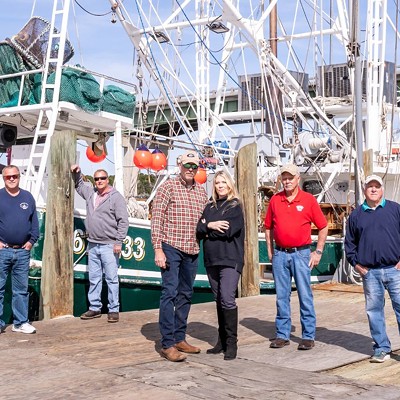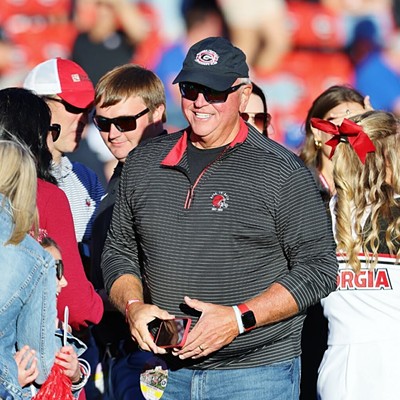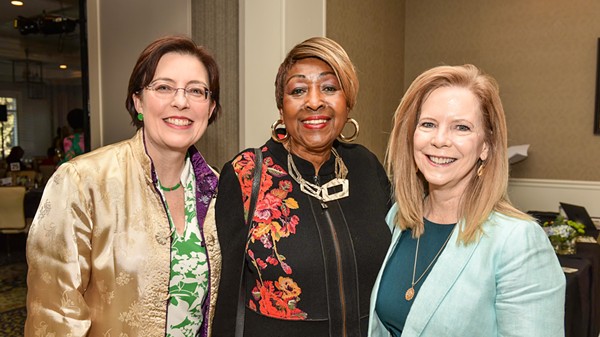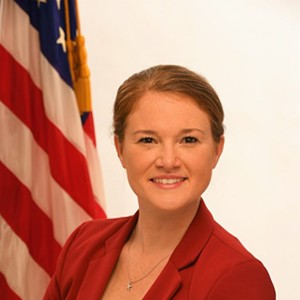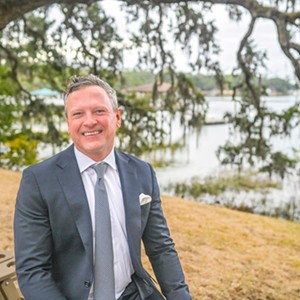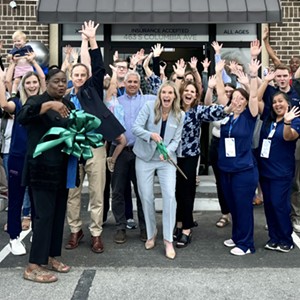Engineering the future
[
{
"name": "Air - MedRect Combo - Inline Content 1",
"component": "14680855",
"insertPoint": "7",
"requiredCountToDisplay": "5",
"parentWrapperClass": "fdn-ads-inline-content-block"
},{
"name": "Air - MedRect Combo - Inline Content 2",
"component": "14680856",
"insertPoint": "15",
"requiredCountToDisplay": "9",
"parentWrapperClass": "fdn-ads-inline-content-block"
},{
"name": "Air - SVP - Leaderboard - Inline Content - 2",
"component": "16852291",
"insertPoint": "10",
"requiredCountToDisplay": "10",
"parentWrapperClass": "fdn-ads-inline-content-block"
},{
"name": "Air - SVP - Leaderboard - Inline Content - 3",
"component": "16852292",
"insertPoint": "20",
"requiredCountToDisplay": "18",
"parentWrapperClass": "fdn-ads-inline-content-block"
},{
"name": "Air - SVP - Leaderboard - Inline Content - 1",
"component": "16852290",
"insertPoint": "25",
"requiredCountToDisplay": "22",
"parentWrapperClass": "fdn-ads-inline-content-block"
}
]
A roller coaster in the lobby of Spencer Elementary School is causing a lot of excitement among students.
The children are asking, How do you do that? Principal Juanita Seales says. They get very excited when we tell them, Yes, youll be doing things like this next year. Even the fifth graders are very excited.
A new magnet school, the Spencer Elementary Childrens Engineering Academy, will open at the beginning of the 2005-06 school year. It will be the first engineering academy for public school elementary students in Georgia.
An engineering advisory committee is being formed to help set the academys curriculum and develop hands-on activities for the children to do. The committee will be composed of engineers, who also will offer technical advice to teachers.
One of the participating engineers is Julie Sonnenberg-Klein, the program coordinator of Georgia Techs InfinitEnergy Project and Outreach
There are a lot of hands-on engineering activities children can do, Sonnenberg-Klein says. They can learn about math and science in a fun way, and realize that they can be used to solve real problems.
Not that Sonnenberg-Klein ever needed any encouragement. I think engineering is fun, she says.
But access to such a program as a youngster might have made a big difference, she says.
When I was a child, I dont think education was nearly as innovative, she says. I didnt grasp how important geometry was until high school physics. Then I saw how it can be used to help build houses. I would have loved to be in an engineering academy like this. Im really excited about this because theres really a lot of things you can do for not a whole lot of money.
Georgia Tech currently is building hands-on demonstrations of alternate energy. We have little solar panels to operate a fan, Sonnenberg-Klein says. Its like magic because you can actually see how it works.
Education programs such as the engineering academy are important because all types of engineers are in short supply, says Robert Baugniet, director of corporate communication for Gulfstream Aerospace. Gulfstream has been invited to participate in the advisory committee, and is still considering the proposal. Well look at it very carefully, he says.
Gulfstream is involved in other educational programs, including programs at the Savannah College of Art and Design.
If you take a look at engineering, particularly aerospace engineering, theres a shortage of engineers, Baugniet says. Any activity that encourages engineering, anything we can do to assist in encouraging young people to look at engineering as a career, is something we are interested in doing.
Tim Baumgartner of EMC Engineering Services, Inc. already has decided to sign on.
If put together properly, this program could show people they can get enjoyment from math and problem solving, Baumgartner says. There is really not a lot of education on problem solving, yet its so important, whether its a political problem or a design problem or whatever. One thing Ive especially enjoyed about engineering is finding solutions to problems.
Baumgartner says he understands Spencer is in the process of contacting companies throughout the U.S. to seek input and help in setting up activities for the students.
Theyve got a program theyre going to set up where the companies will bring in an activity and the people to teach the activity, he says. It sounds like theyre doing hands-on kinds of things. This will help students decide if theyre interested in math and science.
In his own education, Baumgartner sought out the types of programs that led to his career as an engineer.
I always tried to take all the different math and science courses I could, he says. I probably tried to put something like this together on my own. I was always building models.
In junior high, Baumgartner took a test that showed he had an aptitude for -- surprise! -- engineering. But he says thats not enough.
One thing Im going to try to impress on them is the need to develop people skills. Even when I was in college, I thought engineering was probably going to mean sitting alone in an office, crunching numbers, he says.
You have to learn people skills, he says. You have to have confidence in communication with others, which helps with problem solving.
Baumgartners children attend Marshpoint Elementary, which is an accelerated learning academy. Im also very involved in Math Counts, a program for grades 6, 7 and 8, he says.
Math Counts participants learn about mathematics and compete in math competitions. Ive been involved in that since 1993, Baumgartner says. I love seeing bright kids come in here who are able to use math. Its so exciting to see how brilliant they are.
Savannah-Chatham County Public Schools offer magnet programs in several areas, including advanced learning, fine and performing arts, communications technology and more.
New magnets this year include the Bartow Academy Math, Technology and Design Academy; the Butler Elementary MicroSociety/ Communications Technology Academy; the Gadsen Elementary Advanced Learning Academy; the Thunderbolt Academy Marine Science Academy, and of course the engineering academy at Spencer.
Magnet school applications are being accepted now. The deadline to apply is Feb. 11 at 1 p.m.
Because the engineering academy is the first of its kind in the state, local educators have been traveling to look at other such programs in other areas, says Spencer Curriculum Director Debbie Lane. So far, the group has visited schools in Dallas, Miami and Arkansas.
We think its important to get a good feel for what an engineering academy should be, Lane says. We were lucky enough to get a federal grant to get us up and started.
Spencer students in pre-K through fifth grade will be involved in the program. There will be an engineering lab, a LEGO-based lab, and math, technololgy and science labs, Lane says.
We will integrate engineering concepts with classroom work, she says. Each grade level will follow a specific engineering theme.
The themes are civil engineering for pre-K, agricultural engineering for kindergarten, environmental engineering for first grade, aerospace engineering for second grade, mechanical engineering for third grade, electrical engineering for fourth grade and chemical engineering for fifth grade.
Lane cites the aerospace theme in the second grade as an example. Theyll do projects with aerospace engineering in the lab, she says. Back in the classroom, the students will also work on projects, such as making hot air balloons and glider planes.
Lane says engineers from Gulfstream Aerospace will come in to work with the children. Lockheed-Martin has already been in to talk to the kids, she says.
The lessons will help students regardless of their eventual career choices. When you think about it, engineering covers everything from the medical field to computers, Lane says. The kinds of skills they will learn can be used in any career in the future.
In addition to helping set curriculum, the advisory committee will come in and talk to the students and teachers. Theyll be keeping the teachers on track, Lane says. Were experts on education, not necessarily engineering.
Spencer students already get experience in architecture with the help of the Savannah College of Art and Design through the Archi-Peture program. Architecture students come over and work with the children on designing pet houses, Lane says.
The kids work on the project and then take a field trip to actually build the structures, she says. Theyre put on display at the Sidewalk Arts Festival and auctioned off as a benefit for the Humane Society.
If there are more students than slots at Spencer, a lottery will be conducted. However, Lane does not think that will be necessary.
Since were new, theres not as much concern about filling the spaces, she says. We have approximately 500 students now. We have the capacity of adding up to 100 additional students with the present facility.
Although the program will not begin until the new school year, a grand opening and ribbon-cutting ceremony will be held Feb. 3. Were going to make a big fuss, Lane says.
Any Savannah-Chatham County Public Schools student who will be enrolled in pre-K through fifth grade next year can apply for the program.
They can come to the school to pick up an application and informational packet, Lane says. With a magnet school, transportation is automatically provided, so thats one thing parents wont have to be concerned about.
Spencer already has several programs in place that are designed to encourage students to learn, including PORTS -- Presenting Opportunities for Really Talented Students.
Its a before- and-after school program, a club-type thing, Lane says. There is a science club, culinary arts club, chess club and others.
Other PORTS offered include media production, journalism, knitting, engineering and Odyssey of the Mind.
PORTS includes all students, Seales says. We dont select students based on their talents. Its for any student who is interested in pursuing any kind of interest or hobby. The teachers express an interest (in conducting a PORTS group). They meet before or after school.
PORTS options may change every nine weeks. The programs are not limited to the school year, as summer enrichment programs are offered.
Although the engineering academy will not officially start until the new school year, some of the labs are up and running and students are already utilizing them.
Lane says having access to a program such as the engineering academy as a child would have been an big experience in her life. I would have understood physics and simple mechanical things if I had been able to work on them, she says.
I attended a teachers workshop where we built cars and launchers, Lane says. We saw such things as friction and how to change tension on the launches and it just made sense, compared to looking at it in books or memorizing it from a worksheet.
Doing hands-on projects with components such as LEGOs make learning fun -- and more likely to stick. Children already are grasping some lofty concepts, thanks to hands-on activities.
Grades 3 to 5 are learning algebra, Lane says. They have hands-on equations. If this had been available to me, I would have understood algebra so much better and it would have been fun!
Spencer also is an Americas Choice school. The Americas Choice School Design is a comprehensive reform design for kindergarten through high school that focuses on acceleration rather than remediation.
Were a national demonstration site with people coming here from all over the country to see our program, Lane says. Ninety-five percent of our fifth graders are meeting or exceeding standardized state tests.
Americas Choice is research-based, with a focus on performance standards. Seales says. We have focused on reading and writing so far and have started on math.
Teachers are already seeing improved standardized test scores.
Our scores have come up, Seales says. Weve made tremendous gains. Its definitely because of Americas Choice and because our staff is so enthusiastic about it. The engineering academy will enhance Americas Choice.
Several parents have already filled out applications for the engineering magnet.
Were very excited, Seales says. I can definitely say the children will be excited about the hands-on activities they will be doing. Well be providing a well-rounded program for all students.
Applications for Chatham County magnets are being accepted now. The deadline to apply is Feb. 11 at 1 p.m. Call Spencer Elementary at 201-7525. To comment on this article, e-mail us at
The children are asking, How do you do that? Principal Juanita Seales says. They get very excited when we tell them, Yes, youll be doing things like this next year. Even the fifth graders are very excited.
A new magnet school, the Spencer Elementary Childrens Engineering Academy, will open at the beginning of the 2005-06 school year. It will be the first engineering academy for public school elementary students in Georgia.
An engineering advisory committee is being formed to help set the academys curriculum and develop hands-on activities for the children to do. The committee will be composed of engineers, who also will offer technical advice to teachers.
One of the participating engineers is Julie Sonnenberg-Klein, the program coordinator of Georgia Techs InfinitEnergy Project and Outreach
There are a lot of hands-on engineering activities children can do, Sonnenberg-Klein says. They can learn about math and science in a fun way, and realize that they can be used to solve real problems.
Not that Sonnenberg-Klein ever needed any encouragement. I think engineering is fun, she says.
But access to such a program as a youngster might have made a big difference, she says.
When I was a child, I dont think education was nearly as innovative, she says. I didnt grasp how important geometry was until high school physics. Then I saw how it can be used to help build houses. I would have loved to be in an engineering academy like this. Im really excited about this because theres really a lot of things you can do for not a whole lot of money.
Georgia Tech currently is building hands-on demonstrations of alternate energy. We have little solar panels to operate a fan, Sonnenberg-Klein says. Its like magic because you can actually see how it works.
Education programs such as the engineering academy are important because all types of engineers are in short supply, says Robert Baugniet, director of corporate communication for Gulfstream Aerospace. Gulfstream has been invited to participate in the advisory committee, and is still considering the proposal. Well look at it very carefully, he says.
Gulfstream is involved in other educational programs, including programs at the Savannah College of Art and Design.
If you take a look at engineering, particularly aerospace engineering, theres a shortage of engineers, Baugniet says. Any activity that encourages engineering, anything we can do to assist in encouraging young people to look at engineering as a career, is something we are interested in doing.
Tim Baumgartner of EMC Engineering Services, Inc. already has decided to sign on.
If put together properly, this program could show people they can get enjoyment from math and problem solving, Baumgartner says. There is really not a lot of education on problem solving, yet its so important, whether its a political problem or a design problem or whatever. One thing Ive especially enjoyed about engineering is finding solutions to problems.
Baumgartner says he understands Spencer is in the process of contacting companies throughout the U.S. to seek input and help in setting up activities for the students.
Theyve got a program theyre going to set up where the companies will bring in an activity and the people to teach the activity, he says. It sounds like theyre doing hands-on kinds of things. This will help students decide if theyre interested in math and science.
In his own education, Baumgartner sought out the types of programs that led to his career as an engineer.
I always tried to take all the different math and science courses I could, he says. I probably tried to put something like this together on my own. I was always building models.
In junior high, Baumgartner took a test that showed he had an aptitude for -- surprise! -- engineering. But he says thats not enough.
One thing Im going to try to impress on them is the need to develop people skills. Even when I was in college, I thought engineering was probably going to mean sitting alone in an office, crunching numbers, he says.
You have to learn people skills, he says. You have to have confidence in communication with others, which helps with problem solving.
Baumgartners children attend Marshpoint Elementary, which is an accelerated learning academy. Im also very involved in Math Counts, a program for grades 6, 7 and 8, he says.
Math Counts participants learn about mathematics and compete in math competitions. Ive been involved in that since 1993, Baumgartner says. I love seeing bright kids come in here who are able to use math. Its so exciting to see how brilliant they are.
Savannah-Chatham County Public Schools offer magnet programs in several areas, including advanced learning, fine and performing arts, communications technology and more.
New magnets this year include the Bartow Academy Math, Technology and Design Academy; the Butler Elementary MicroSociety/ Communications Technology Academy; the Gadsen Elementary Advanced Learning Academy; the Thunderbolt Academy Marine Science Academy, and of course the engineering academy at Spencer.
Magnet school applications are being accepted now. The deadline to apply is Feb. 11 at 1 p.m.
Because the engineering academy is the first of its kind in the state, local educators have been traveling to look at other such programs in other areas, says Spencer Curriculum Director Debbie Lane. So far, the group has visited schools in Dallas, Miami and Arkansas.
We think its important to get a good feel for what an engineering academy should be, Lane says. We were lucky enough to get a federal grant to get us up and started.
Spencer students in pre-K through fifth grade will be involved in the program. There will be an engineering lab, a LEGO-based lab, and math, technololgy and science labs, Lane says.
We will integrate engineering concepts with classroom work, she says. Each grade level will follow a specific engineering theme.
The themes are civil engineering for pre-K, agricultural engineering for kindergarten, environmental engineering for first grade, aerospace engineering for second grade, mechanical engineering for third grade, electrical engineering for fourth grade and chemical engineering for fifth grade.
Lane cites the aerospace theme in the second grade as an example. Theyll do projects with aerospace engineering in the lab, she says. Back in the classroom, the students will also work on projects, such as making hot air balloons and glider planes.
Lane says engineers from Gulfstream Aerospace will come in to work with the children. Lockheed-Martin has already been in to talk to the kids, she says.
The lessons will help students regardless of their eventual career choices. When you think about it, engineering covers everything from the medical field to computers, Lane says. The kinds of skills they will learn can be used in any career in the future.
In addition to helping set curriculum, the advisory committee will come in and talk to the students and teachers. Theyll be keeping the teachers on track, Lane says. Were experts on education, not necessarily engineering.
Spencer students already get experience in architecture with the help of the Savannah College of Art and Design through the Archi-Peture program. Architecture students come over and work with the children on designing pet houses, Lane says.
The kids work on the project and then take a field trip to actually build the structures, she says. Theyre put on display at the Sidewalk Arts Festival and auctioned off as a benefit for the Humane Society.
If there are more students than slots at Spencer, a lottery will be conducted. However, Lane does not think that will be necessary.
Since were new, theres not as much concern about filling the spaces, she says. We have approximately 500 students now. We have the capacity of adding up to 100 additional students with the present facility.
Although the program will not begin until the new school year, a grand opening and ribbon-cutting ceremony will be held Feb. 3. Were going to make a big fuss, Lane says.
Any Savannah-Chatham County Public Schools student who will be enrolled in pre-K through fifth grade next year can apply for the program.
They can come to the school to pick up an application and informational packet, Lane says. With a magnet school, transportation is automatically provided, so thats one thing parents wont have to be concerned about.
Spencer already has several programs in place that are designed to encourage students to learn, including PORTS -- Presenting Opportunities for Really Talented Students.
Its a before- and-after school program, a club-type thing, Lane says. There is a science club, culinary arts club, chess club and others.
Other PORTS offered include media production, journalism, knitting, engineering and Odyssey of the Mind.
PORTS includes all students, Seales says. We dont select students based on their talents. Its for any student who is interested in pursuing any kind of interest or hobby. The teachers express an interest (in conducting a PORTS group). They meet before or after school.
PORTS options may change every nine weeks. The programs are not limited to the school year, as summer enrichment programs are offered.
Although the engineering academy will not officially start until the new school year, some of the labs are up and running and students are already utilizing them.
Lane says having access to a program such as the engineering academy as a child would have been an big experience in her life. I would have understood physics and simple mechanical things if I had been able to work on them, she says.
I attended a teachers workshop where we built cars and launchers, Lane says. We saw such things as friction and how to change tension on the launches and it just made sense, compared to looking at it in books or memorizing it from a worksheet.
Doing hands-on projects with components such as LEGOs make learning fun -- and more likely to stick. Children already are grasping some lofty concepts, thanks to hands-on activities.
Grades 3 to 5 are learning algebra, Lane says. They have hands-on equations. If this had been available to me, I would have understood algebra so much better and it would have been fun!
Spencer also is an Americas Choice school. The Americas Choice School Design is a comprehensive reform design for kindergarten through high school that focuses on acceleration rather than remediation.
Were a national demonstration site with people coming here from all over the country to see our program, Lane says. Ninety-five percent of our fifth graders are meeting or exceeding standardized state tests.
Americas Choice is research-based, with a focus on performance standards. Seales says. We have focused on reading and writing so far and have started on math.
Teachers are already seeing improved standardized test scores.
Our scores have come up, Seales says. Weve made tremendous gains. Its definitely because of Americas Choice and because our staff is so enthusiastic about it. The engineering academy will enhance Americas Choice.
Several parents have already filled out applications for the engineering magnet.
Were very excited, Seales says. I can definitely say the children will be excited about the hands-on activities they will be doing. Well be providing a well-rounded program for all students.
Applications for Chatham County magnets are being accepted now. The deadline to apply is Feb. 11 at 1 p.m. Call Spencer Elementary at 201-7525. To comment on this article, e-mail us at



